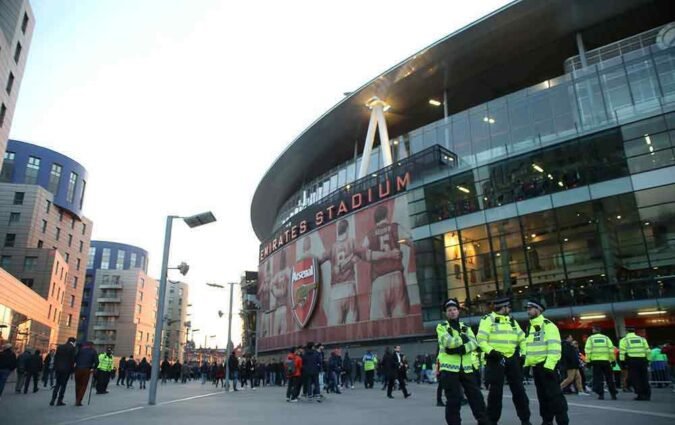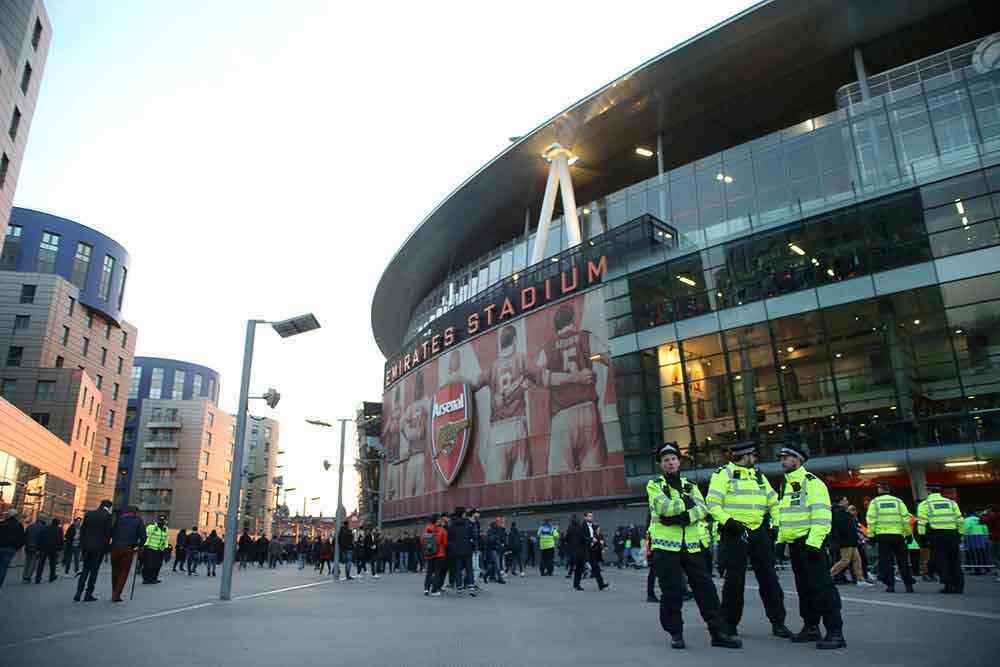According to a report from ESPN, Tottenham Hotspur “spent significantly less on wages than the rest of the Premier League top six last season, with a bill closer to Burnley’s than North London rivals Arsenal.”
Their report shows Tottenham’s wage bill at around £127m a year (for the year up to 30 June 2017). That is hugely up from the £100m the year before, but a lot lower than Arsenal at £199m and under half of the Man U wages bill – which is the highest in the League.
This is interesting, of course, because Tottenham are going to finish higher than Arsenal this season – for the second year running.
So does this mean that Tottenham are doing everything right and Arsenal are getting it completely wrong?
To my mind that is not quite the answer. In fact it is a bit like judging a player by his last couple of games – which of course the mainstream media and the blogs love to do.
Tottenham’s wages bill is aided by the fact that they are on an upward curve, and have tied in a number of their players to long term contracts at the start of that upwards curve. Contracts which were more in keeping with with Tottenham as a club that perennially finishes 5th or 6th and has a little outing in the Europa League.
Now they are a club that is going to be in the Champions League for at least three years running, this obviously makes them more attractive for top players, and will cost the club more.
But players who are tempted to sign will recognise that Tottenham are still a club which has not won anything since their League Cup victory in 2008. Ten years without a trophy – although they have been runners’ up in the League Cup twice, and second in the Premier League on one occasion. Players who do sign will expect a premium for the possible continuance in this lack of trophies.
The question is, overall what will this mean to their wages bill?
The ESPN article shows that although the Tottenham wages bill is, as mentioned, currently closer to that of Burnley than it is to Arsenal, a more meaningful comparison is that the clubs nearest them in terms of wages are Leicester, Southampton, Everton and Swansea. Tottenham is lagging a long way behind the rest of the top six.
Thus obviously, Tottenham need to take a step forward. They have their wonderful new stadium, and of course they are charging the fans wonderful new prices to go with that. There has been a little disquiet about just how much those new prices are – prices which take their season tickets (when measured as far as one can on a like-for-like basis) to levels above that of every other London club, including of course Arsenal.

But it was the renewal of certain players’ contracts (as well as the fees charged by some of their directors) that took Tottenham’s wages bill up, and the issue is what happens next.
Salaries in football are rising faster than ever, and this will inevitably lead to further upward pressure at Tottenham, as more contracts come up for renewal, and that will come just as they start having to repay their bank loans on the stadium.
Meanwhile other clubs will start making bids for their top players – something that again is traditionally resisted by the clubs currently employing these men upping the salaries still further.
But ultimately the biggest pressure of all on Tottenham will be that they have to start winning a few more trophies. For although they have indeed won one trophy in the last 10 years, they have only won two (or rather the same trophy twice) in the past 20 years. Or three in the last 27.
Although Tottenham did come second in the Premier League last season, they are clearly not going to do that again this year. Of course they could win the FA Cup, which would be a step in the right direction, but it could be remembered that higher prices to get in the ground inevitably means higher expectations from the fans.
Perhaps Arsenal fans were spoiled, but at the Emirates three FA Cups in four years, with a League Cup final the following season, was still nowhere near enough for some of the club’s supporters. Tottenham fans are used to not winning things, but at these prices it is possible they will expect to become used to trophies. And that will mean more money for players.
To make this leap forwards Tottenham will need to continue improving its squad, and continue to renew contracts at ever higher prices. On the one hand they will have extra income from the rebuilt ground, but on the other, they’ll have all those bank repayments for a ground that ended up costing far more than the Emirates did – and without an old ground to sell off as flats.
As long as success grows with a long run in the Champions League and a few Cup wins the club will probably be ok. But if it fails to bring in trophies there could be player discontent, along with one other issue currently lurking in the background.
Chairman Daniel Levy’s pay rose from £2.8m in 2015-16 to £6m last season – in short it more than doubled. That is considerably more than anyone at Arsenal is paid. A failure to keep up the progress, and ultimately a failure to win a few pots, leaves the club open to all sorts of allegations and demands.
The real problem is that winning a trophy is something that only lasts the summer. Once it is done the supporters paying what will be the most expensive prices for seats in the country will expect more. And more. Indeed winning trophies turns out to be the biggest problem of all, because of the way it raises expectations.
Maybe Tottenham fans will be more patient than Arsenal’s given the long wait they have had in the past for a regular stream of trophies. But ultimately there is a problem at the top of the Premier League.
There are now six clubs whose fans expect success: Arsenal, Tottenham and Chelsea in London, Man U, Man C and Liverpool in the north west. There are three domestic trophies and two in Europe, which means even in the best of all seasons someone is going to miss out – and that assumes both Euro cups are won by English clubs. That might happen but there are at least four clubs in Europe who would expect to interfere with that notion.
And just to make it more complicated, over two thirds of Tottenham’s profit before tax in the last financial year came from an unreliable source: profit on player sales. In effect, Tottenham have been the archetypal selling club for years, and in the most recently disclosed financial year, the biggest selling club of all.
Now that of course can’t continue. Yes they could get away with selling Bale and then blowing a cool £100m on players who never made it. And maybe now under the current management they can get better deals. But take out that element of the profit (as would seem to be more than likely in the current financial year) and Tottenham’s ability to bring in further top players looks like stretching the bank balance to breaking point.
The fact is the top six are now working in an environment in which they are buying £50m players in the knowledge that the player might not live up to expectations, or might have his head turned by PSG, Barcelona, Real Madrid or indeed Manchester United as the contract comes up for renewal.
Arsenal got away with the loss of Alexis by doing a swap for Mkhitaryan – but such an arrangement (which looks to be quite a good deal for Arsenal) is not always going to be possible as a contract runs down.
Tottenham have done extremely well with their player trading, and maybe they have some more tricks up their sleeve. But the suspicion must be that a £40m profit on players while maintaining the playing standard and pushing harder for trophies, is basically going to be very difficult, bordering on impossible.
And that will happen just as those annoying loan repayments start.
